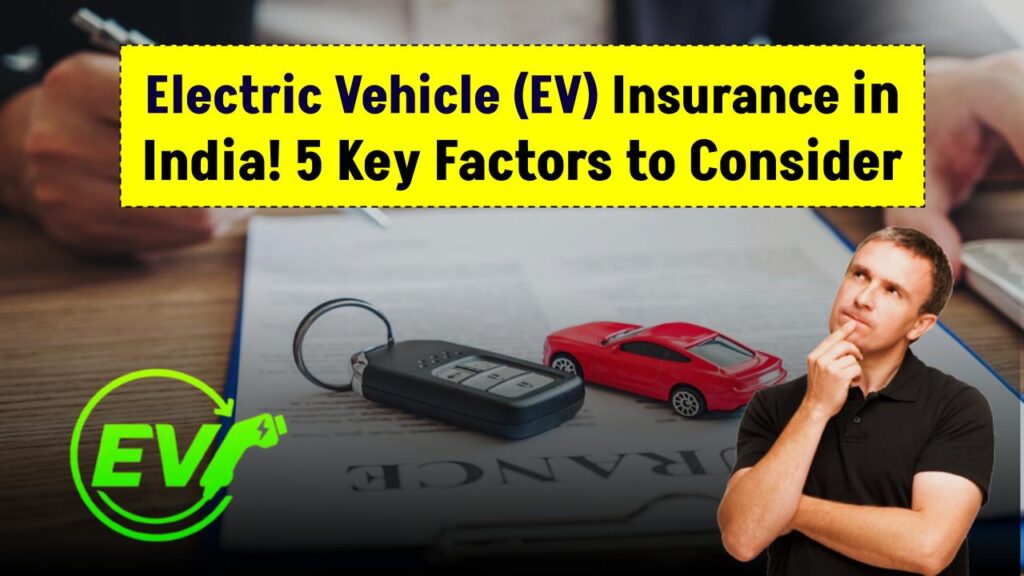Electric Vehicle Insurance: Electric vehicles (EVs) are becoming increasingly popular in India, thanks to their environmental benefits, lower running costs, and government incentives. However, buying the right insurance for your EV is crucial to protect your investment and ensure peace of mind on the road. In this guide, we’ll walk you through the 5 key factors you should consider when purchasing EV insurance in India.

Electric Vehicle Insurance
| Factor | Description | Key Considerations |
|---|---|---|
| Insured Declared Value (IDV) | Represents the market value of your EV, influencing the premium. | Battery capacity, model, and age of the vehicle. |
| Battery Coverage | Covers damage or replacement of the EV battery. | Often not included in standard policies. Add-on recommended. |
| Specialized Add-Ons | Additional coverage options specific to EVs. | Zero depreciation, roadside assistance, charging equipment protection. |
| Repair and Maintenance | Costs can be higher due to specialized components. | Opt for cashless repair at authorized service centers. |
| Discounts and Incentives | Savings for environmentally friendly choices. | Bundling policies can reduce costs. |
Choosing the right EV insurance involves more than just comparing premiums. Understanding your vehicle’s value, the importance of battery coverage, and the benefits of specialized add-ons can help you find the perfect policy. Always compare multiple insurers and read the fine print before making a decision.
Insured Declared Value (IDV) and Vehicle Specifications
The IDV is the current market value of your EV and directly impacts your insurance premium. Factors affecting the IDV include the vehicle’s make, model, battery capacity, and age. For example, luxury EVs like the Kia EV6 typically have higher premiums compared to more budget-friendly models like the Tata Punch EV. Source
Battery Coverage
The battery is one of the most expensive parts of an EV, with replacement costs ranging from ₹5 lakh to ₹15 lakh. Most standard insurance policies don’t cover battery degradation or damage, making it essential to opt for battery coverage as an add-on for comprehensive protection. Source
Specialized Add-Ons for EVs
Consider add-ons that cater specifically to EVs, such as:
- Zero Depreciation Cover – Full claim without considering depreciation.
- Roadside Assistance – Essential due to limited charging infrastructure.
- Charging Equipment Protection – Covers home chargers and cables.
- Motor Protector Cover – Protects the critical electric motor. These can significantly enhance your coverage. Source
Repair and Maintenance Considerations
EVs often require specialized repairs, which can be more expensive than conventional cars. Choosing insurers that offer cashless repairs at authorized EV service centers can save time and money. Source
Discounts and Incentives
Some insurers provide discounts for EV owners due to their lower environmental impact. Additionally, bundling your EV insurance with other policies can lead to further savings. Source
FAQs on Electric Vehicle Insurance
Q1. Why is EV insurance more expensive than conventional car insurance?
A1. EVs have higher upfront costs and specialized components, leading to higher repair costs.
Q2. Is battery coverage necessary?
A2. Yes, given the high cost of EV batteries, it’s a wise investment.
Q3. Can I reduce my EV insurance premium?
A3. Yes, by opting for discounts, bundling policies, and maintaining a clean driving record.









